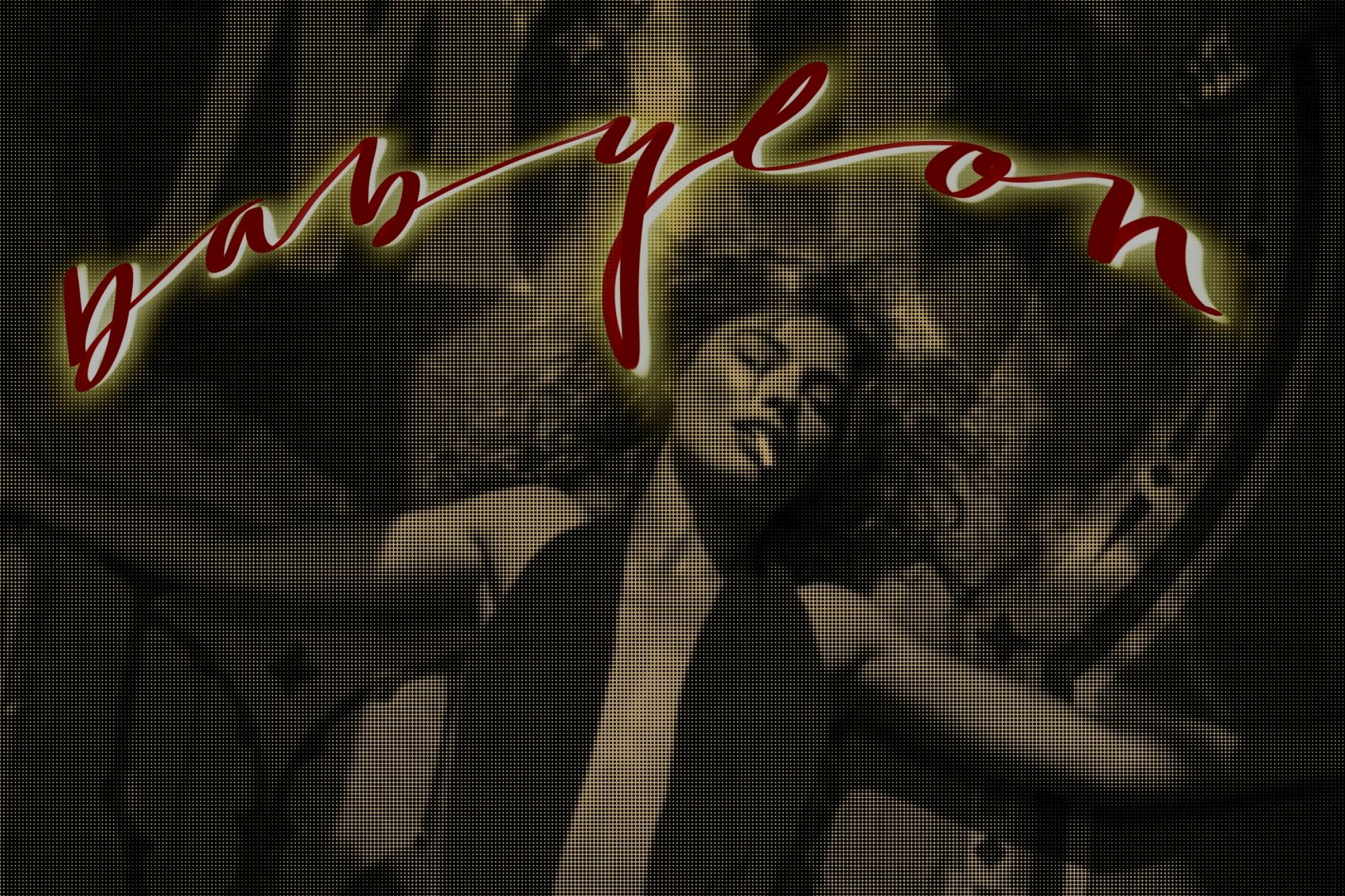On Dec. 23, 2022, Damien Chazelle, the director of “La La Land,” released “Babylon.” The nearly three-hour film has one indisputable quality: an ability to spur a fierce response, good or bad, from all its viewers. Slate deems “Babylon” a “defecating elephant of a movie,” while BBC instead describes it as a “cinematic marvel.”
“Babylon” is set in 1920s Hollywood at the crux of the transition from silent to sound movies, nicknamed “talkies.” Chazelle renders “Babylon”’s main characters in the same dreamy, untamed form as the place itself. There’s aspiring actress Nellie LaRoy (Margot Robbie), who waltzes across the screen with wild hair and proclaims in an unrestrained Jersey accent: “It’s written in the stars. I am a star.” Kind-hearted Mexican immigrant Manny Tores (Diego Calva) longs to work on a movie set, but settles instead for a job as an assistant to Hollywood star Jack Conrad (Brad Pitt).
The film begins at the height of the silent film era. Tores attempts to transport an elephant to a hedonistic party at Conrad’s mansion in the desert, resulting in the pachyderm dramatically defecating on Tores. This establishes the tone for the rest of the movie: viscerally intense to the point of revulsion. At this lavish party — overflowing with sex, cocaine, fur and feathers — Tores meets LaRoy, still an unknown actress. He’s immediately captivated by LaRoy, even admitting, “te amo,” (I love you).
After catching the attention of a director, LaRoy soon achieves her dream of stardom, securing several lead roles in silent films, her image plastered across billboards and magazines. But the machine of the film industry charges forward towards sound. Tores is swept securely into the sound era with a new role as a producer at Kinescope, but LaRoy begins losing roles after being mocked for her voice. She seems to represent an unwanted remainder of the past silent era, considered far too raunchy for the sleeker Hollywood of the late 1920s.
Once the dominant male star of his time, Conrad, too, struggles to be taken seriously in sound films. He even consults famed gossip and writer, Elinor St. John (Jean Smart), who forthrightly explains: When confronted by change, those in the spotlight are doomed to tragic ends, while the “cockroaches in the dark” survive. Tores thrives in his position as producer, but always yearns for LaRoy — even completing a whirlwind journey to the criminal underbelly of Los Angeles in an attempt to save her from the consequences of her gambling addiction. As the film concludes, Tores escapes disaster, but LaRoy and Conrad (as foreshadowed) are indeed cursed to suffer a dramatic downfall.
In some ways, “Babylon” succeeds; the film certainly benefits from its estimated $100 million budget and killer cast. Both Robbie and Calva deliver fantastic performances. In one striking scene, Robbie (as LaRoy) musters up fake tears on command about twenty times. Robbie is incredibly animated, transitioning from despair to elation with total ease — this kind of range is crucial for a turbulent character like LaRoy.
Calva, too, generates a resonant portrayal of Tores, a complicated character who faces a key dilemma: Can the “outsider” gain entry to the inside without sacrifice? As a producer and person of color in a distinctly prejudiced environment, Tores sometimes concedes his own integrity in order to succeed. In one heartbreaking scene, when directed by a higher-up, Tores asks famous Black trumpet player Sidney Palmer (Jovan Adepo) to paint his face darker with black coal. Throughout the film, Calva nails the complexities of this role, spurring both frustration and admiration from the audience.
“Babylon” also features frequent Chazzele collaborator Justin Hurwitz’s pulsating score, threading a sense of continuity throughout the entire film. The upbeat trumpets and drums transport the viewer from one glittering scene to another; Chazelle expertly blends the sonic and visual elements of the film. Each shot seems to revel in its own glory as “Babylon” transforms beauty into something ugly. LaRoy vomits at a party, all while draped in a pale-blue gown. A coiled snake later bites her on the neck. Blood drips onto the desert floor. Despite its eroticism, the movie is distinctly unromantic — even revolting.
The world of “Babylon” is all about indulgence. Chazelle also indulges as a director — in noise, color and costume. The $100 million budget is put to good use. But indulgence without occasional restraint becomes ineffective. Tiresome, even. The film invests so much effort in its many party scenes while completely ignoring character development. Though Tores portrays as a fully-realized character, LaRoy and Conrad fall flat as overdone tropes. Despite Robbie’s best efforts, LaRoy feels like nothing more than the typical Hollywood party girl; I struggled to resonate with her character and felt no empathy at her strife. Conrad, too, is an empty echo of a clichéd movie star without any depth.
Without the proper scaffolding — an emotional investment in the characters, proper pacing, a clearer focus — the dazzling stuff of “Babylon” deflates into nothingness. As the film continues, its endless shots of mansions and beautiful people seem to entirely lack soul. Who cares? I wanted to sigh at scenes clearly intended to shock. The film completely loses control over the effect of its own scenes, with an aching gap between the intended and actual impact of each moment.
Through “Babylon,” Chazelle explores several themes: decadence, moviemaking, even the concept of time itself. Victim to its own eagerness, “Babylon” ultimately fails to fully build upon any of these themes; there’s simply not enough time. I felt confused as to what the “point” of it all was. What exactly was Chazelle trying to say?
Perhaps the film is quite like the ancient empire for which it is named: like Babylon itself, fated to collapse by way of its own ambition. But the bright flare of the film as it crumbles itself to ruin — however disorganized— is undeniably thrilling to watch.
Rating: ★★★☆☆




